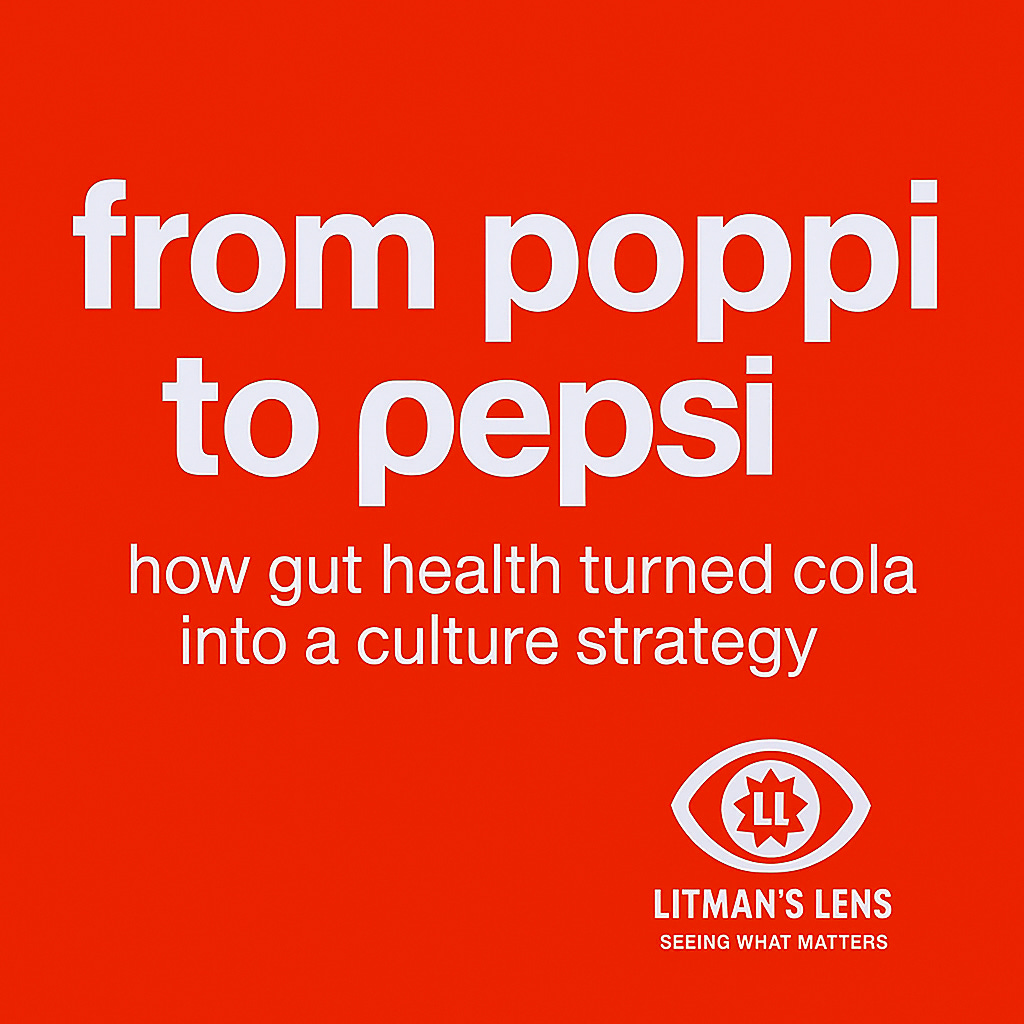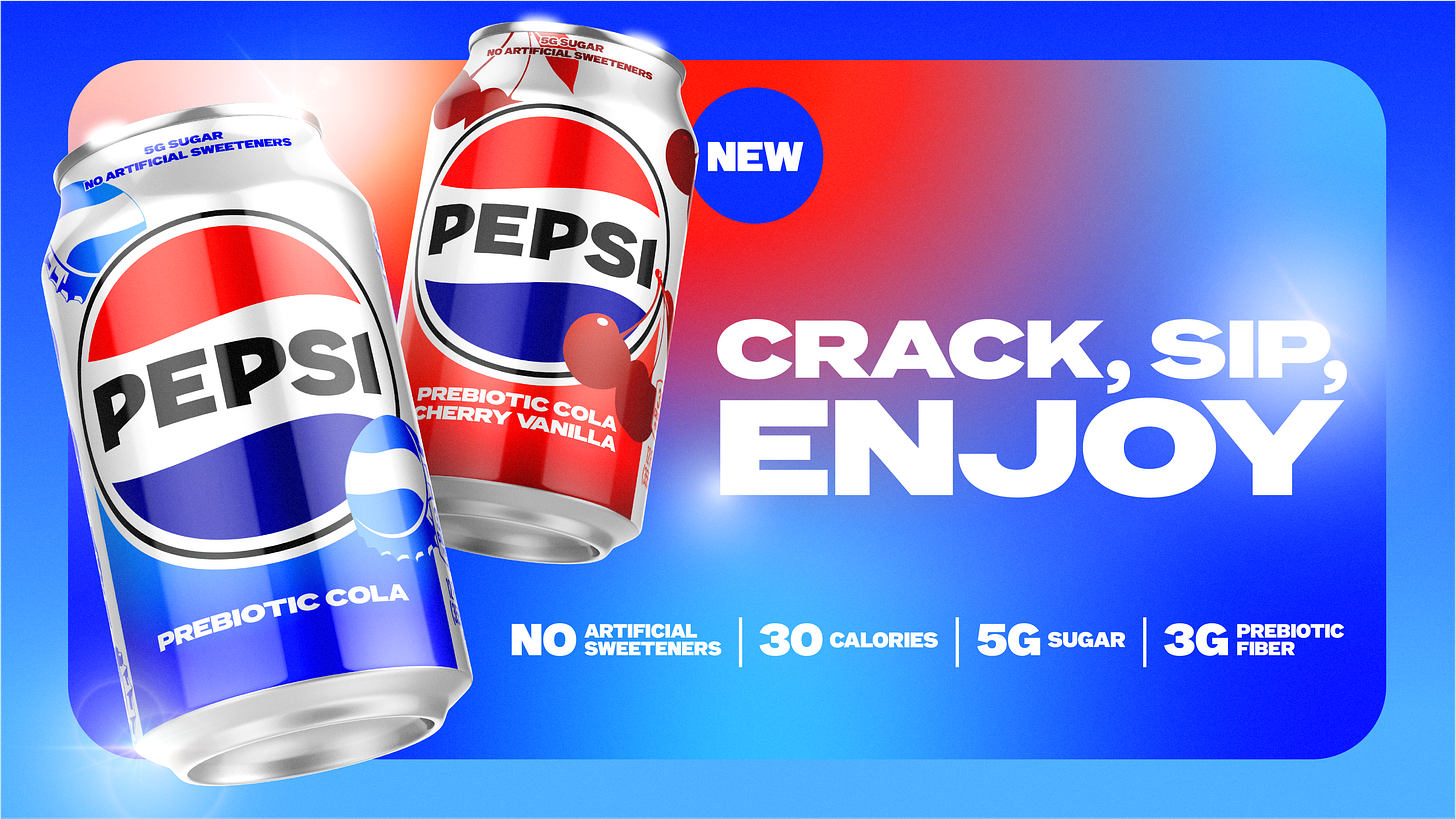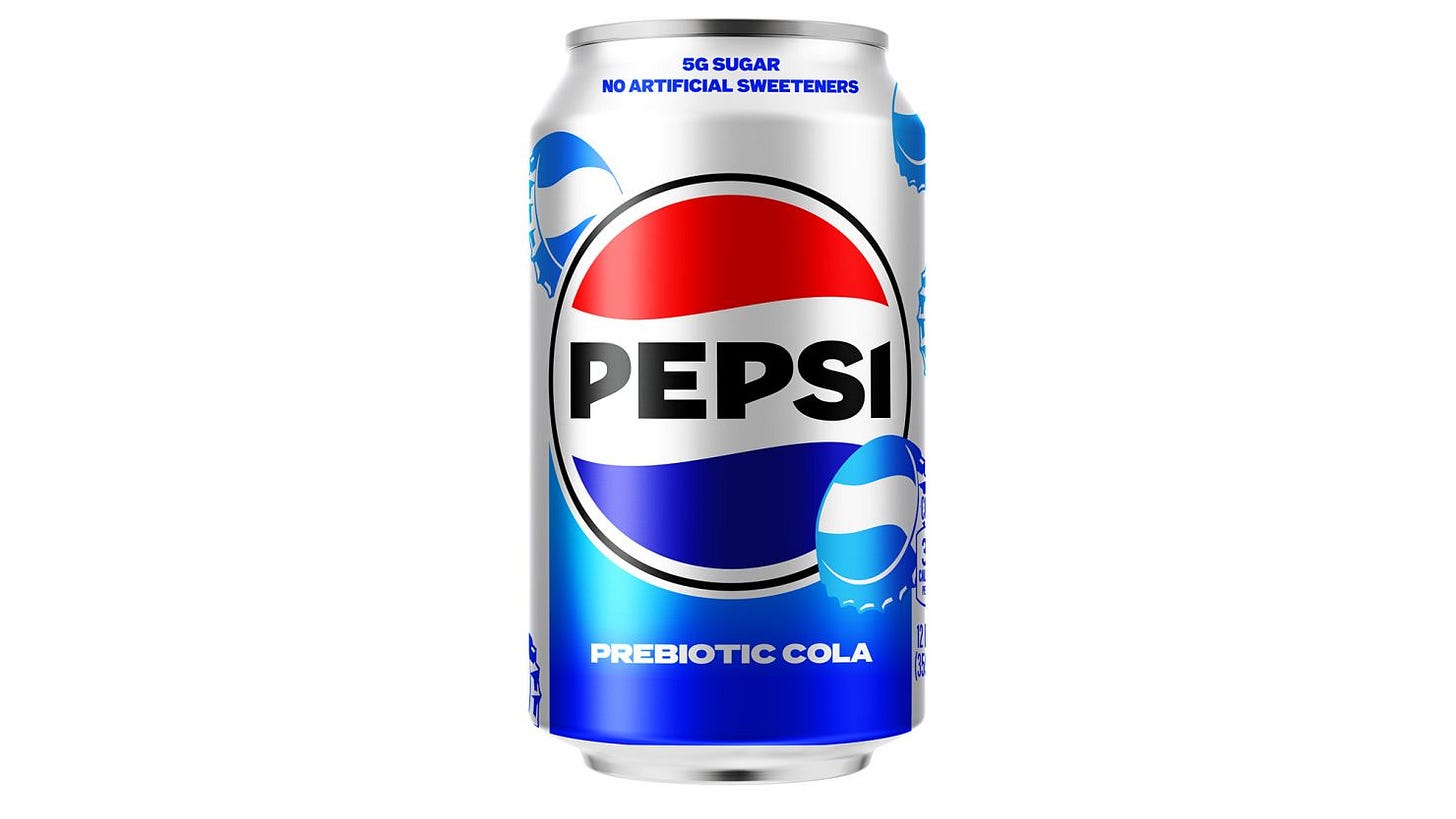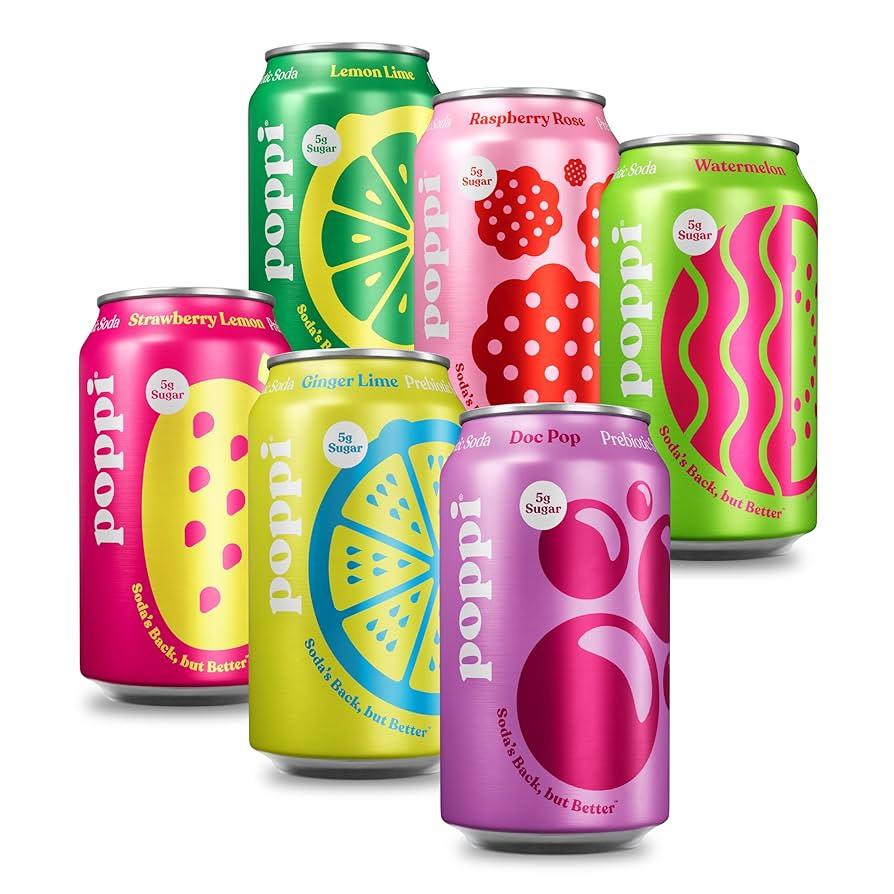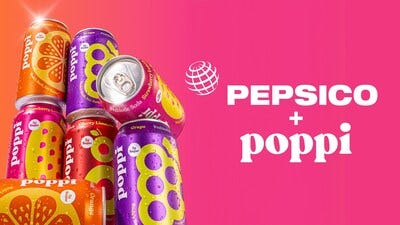from poppi to pepsi: how soda is being recoded for the wellness generation
pepsi is seeking to go from sugar villain to gut-health flex with the launch of prebiotic cola
Pepsi isn’t just launching a new soda.
It’s rewriting the rules of its own brand survival.
Their latest move, a prebiotic cola, isn’t about flavour innovation. It’s about cultural adaptation. It’s about using the word cola more in their fight against Coke. In a world where everything is being recoded as wellness, even the most indulgent products are being quietly rebranded with purpose.
Fizzy drinks, once the poster child for sugar, is suddenly being reframed as a gut-health flex, with Poppi originally leading the way and now showing Pepsi how it’s done.
the redemption loop
Indulgence → Backlash → Reinvention → Health Halo → Cool Again
We’re living through the great reframing of legacy snacks and drinks.
Cereal with protein. Candy with collagen. Soda with prebiotic fiber.
It’s not just about changing the product.
It’s about changing how we feel about it. (And drastically decreasing the sugar levels from 41g to 5g helps too).
what’s in the can
30 calories
5g cane sugar (vs. ~41g in classic Pepsi)
3g prebiotic fiber (from acacia)
No artificial sweeteners
Flavours: Original Cola and Cherry Vanilla
Launching online in late 2025, retail in 2026
It’s not trying to out-kale your green juice.
It’s trying to sit in your fridge without the guilt.
Erase the guilt. Add the fiber. Keep the vibe.
from wellness bait to brand bait
Pepsi’s $1.65B acquisition of Poppi wasn’t just a business deal.
It was a fast-track tutorial in how to keep Pepsi culturally relevant. And this is the next step of that journey.
Poppi was the lab. Pepsi is the factory.
The startup built the vibe. The giant is scaling the system.
what pepsi learned from poppi:
Health is a hook, not the story
Poppi made gut health playful, not preachy. Pepsi is now doing the same.
Design drives distribution
Poppi’s can design made it a fridge flex. Pepsi’s new cans follow suit - clean, confident, camera-ready. (I still prefer the Poppi can aesthetic though).
Flavour is retention
Health draws you in. Nostalgia they hope keeps you coming back.
Start small, scale smart
Pepsi’s launching DTC-first, mimicking the indie playbook before retail rollout.
Lifestyle > lab coats
This isn’t about medical proof. It’s about cultural permission.
the gut play in context:
2019 — Olipop launches with prebiotics
2021 — Poppi hits TikTok virality with “Be Gut Happy”
2024 — Functional soda category grows 300% YoY
2025 (Q2) — PepsiCo acquires Poppi for $1.65B
2025 (Q4) — Pepsi launches its first-ever prebiotic cola
everyone’s doing it - with fiber
Pepsi’s not alone. The era of functional ‘junk food’ is fully underway:
Coca-Cola Plus (Japan) adds dietary fiber to cola
Kraft Mac & Cheese tests hidden vegetable blends
Starburst Gummies launch
Pop-Tarts with protein currently in R&D
McDonald’s explores gut-health snackables (WSJ, June 2025)
what could go wrong
Not everyone will buy it - literally or figuratively.
Wellness purists may scoff at a functional drink from Big Soda.
Old-school cola fans might miss the sugar. Some may see this as greenwashing through fiber.
The sugar reduction is real. The fiber is functional.
But perception is the real active ingredient.
Does this also achieve some halo effect from Poppi?
Poppi has already faced scrutiny over inflated health claims.
Functional doesn’t always mean factual, but in consumer culture, story > science.
the remix era is just getting started
If this lands, don’t expect it to stop with cola.
Next up? Functional legacy spin-offs:
Mountain Dew + adaptogens
Pepsi Zero+ with nootropics
Lay’s with plant protein
Tropicana with collagen
Plus then also:
influencer collabs, gut-fluencer TikToks, and fridge friendly shelf placement designed for social.
If it works? It’s a new operating system for legacy brands.
litman’s lens view:
Pepsi didn’t just reduce sugar. It cleaned up the story. It now has a single point of difference. And if this is a big success, it puts the pressure more on Coke to follow suit.
It’s not selling a drink. It’s selling cultural relevance.
And in 2025, that might be the most functional ingredient of all.



